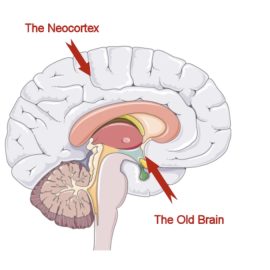

This article is an excerpt from the Shortform book guide to "The Power of Discipline" by Daniel Walter. Shortform has the world's best summaries and analyses of books you should be reading.
Like this article? Sign up for a free trial here.
Why do people resist change? Why do we prefer consistency in our lives?
In The Power of Discipline, Daniel Walter explains that humans struggle with self-discipline, and consequently fail to reach their goals, due to certain biological tendencies. One of those is our tendency to crave consistency.
Keep reading to understand this tendency and how it works against us and our ability to self-discipline.
Why Do People Resist Change?
Walter explains that we resist change and crave consistency—in our lifestyles, jobs, environments, and so on. This tendency impedes self-discipline because it stops us from taking uncomfortable steps that disrupt consistency but trigger improvement and success.
(Shortform note: In The Mountain Is You, Brianna Wiest agrees that our tendency to resist change and favor consistency hinders our ability to take difficult steps and improve ourselves. She explains that this phenomenon occurs because our brains are hardwired to maintain homeostasis—a balance of chemicals and hormones in our bodies. When we step out of our comfort zone and do hard things [like practice self-discipline], we experience emotional changes that alter our bodily chemistry. To avoid these changes and maintain homeostasis, our brain sends us urges to resist change and maintain consistency.)
Why do people resist change? There are three reasons why humans crave consistency and therefore avoid making difficult but necessary choices.
Reason #1
We’re afraid that change, or moving on to something new, will cause us to lose something valuable that we currently have. For example, you resist moving to a different country because you’re afraid that you’ll have a worse life than you would if you stayed in your home country.
Reason #2
We’re afraid of the failure and regret that change might trigger. For example, you might resist moving to a different country because you’re afraid that you won’t find a new job, won’t make new friends, and will ultimately regret your decision.
Reason #3
The longer we experience something—in this case, our current situation—the more comfortable and enjoyable it becomes. For example, you might resist moving to a new country because you’ve lived in your home country for your entire life—you’re comfortable here and know what to expect, so why sabotage that by changing locations?
Exercise: Thought Analysis
To overcome these issues and the tendency toward consistency, Walter suggests performing a thought analysis exercise. The following exercise will help you rationally analyze your decisions so you can make choices that are in your best interest rather than succumbing to your biological tendency to crave consistency.
When you have an important decision to make, write down your options (for example, make the move or stay in your current location), and list the pros and cons for each. The following day, return to your notes and determine which option will be most advantageous for improving yourself and reaching your goals.
| We Crave Consistency Because of Our Pain vs. Pleasure Response Whereas Walter argues there are three underlying reasons why people resist change and favor consistency, Tony Robbins argues that all unproductive behaviors and decisions can be linked to one underlying cause—our biological urge to avoid pain and seek pleasure. In Awaken the Giant Within, Robbins explains that these pain and pleasure responses are controlled by neuro-associations—pathways in our mind that connect certain aspects of an experience with either pain or pleasure. When we have a positive (pleasurable) experience, we form positive neuro-associations with the experience and seek it out again in the future. When we have negative (painful) experiences, we form negative neuro-associations with the experience and avoid it in the future. Robbins elaborates that there are three important factors that determine whether we’ll form a pain association or pleasure association with an experience. These factors may help explain why, according to Walter, we resist change and crave consistency. First, Robbins explains that if a situation introduces a potential loss or physical or emotional pain (such as the pain experienced from failure, regret, or humiliation), people are more likely to form a negative neuro-association with that experience. This may explain why the fear of loss and the fear of failure make us resist change—we’ve negatively neuro-associated change with the potential of these painful fears coming true, meaning we avoid change in the future. Second, Robbins explains that people are likely to form pleasure associations with experiences that provide comfort, causing them to seek these experiences over unknown experiences. Further, the more we engage in a certain comforting experience that provides pleasure, the stronger the positive neuro-association with this experience will grow, and the more we will seek out the experience. This may explain why experiencing comfortable consistency makes us even less likely to seek out change—we’ve positively neuro-associated consistency with pleasure and comfort, and the more we keep things consistent, the stronger that neuro-association becomes. Despite these similarities in approach, Robbins and Walter differ regarding how to overcome these urges. While Walter recommends performing a thought exercise, Robbins recommends reconditioning neuro-associations so you can overcome harmful ones that cause you to engage in negative behaviors (like resisting change). (Walter discusses this technique briefly, but doesn’t emphasize it as the key to overcoming bad habits as Robbins does.) We’ll discuss Robbins’s in-depth advice for overcoming negative neuro-associations and replacing them with positive ones in later commentary. |

———End of Preview———
Like what you just read? Read the rest of the world's best book summary and analysis of Daniel Walter's "The Power of Discipline" at Shortform.
Here's what you'll find in our full The Power of Discipline summary:
- What self-discipline is and why we struggle with it
- How to do what you should do even if it's not what you want to do
- The six good habits that will override your bad habits






